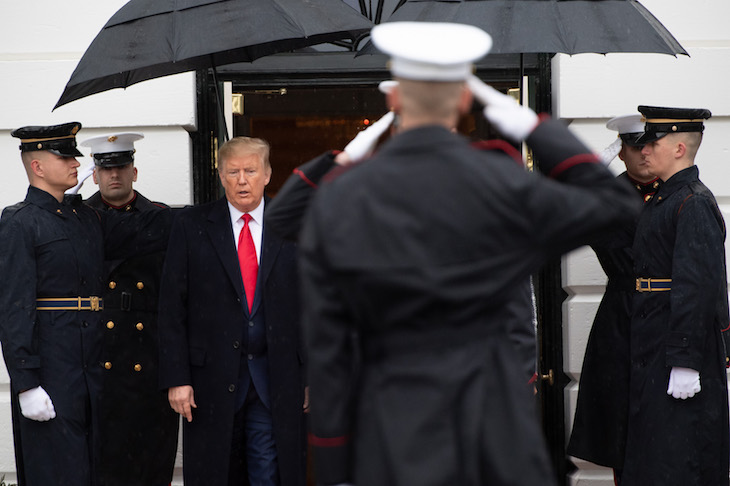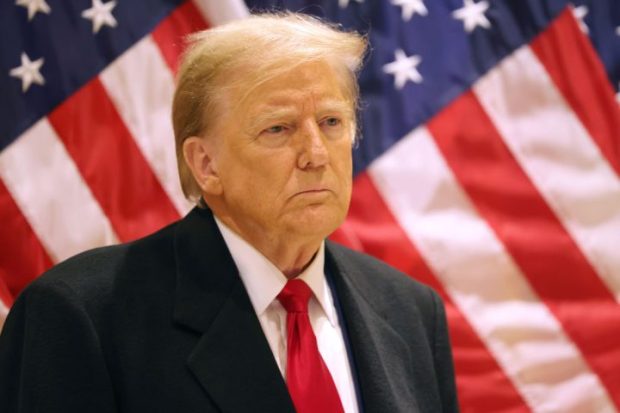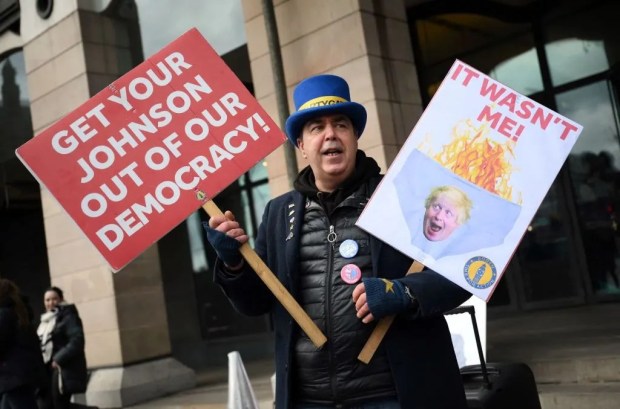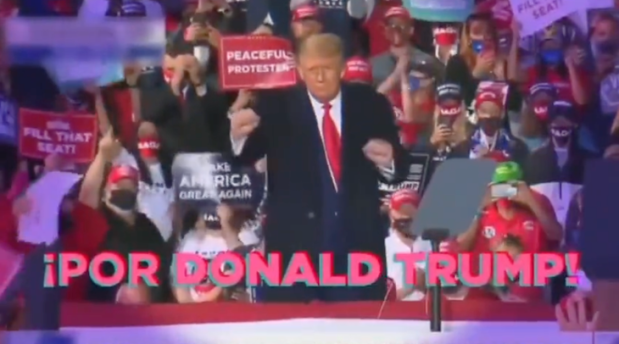As a general rule, neoconservatives and hawkish Republican foreign policy officials don’t respect President Donald Trump’s capacities as commander-in-chief. They view him as impulsive, unwise, short-sighted, and buffoonish—the kind of guy who doesn’t do his homework, spends more time on Twitter than reading briefing books and would rather pull up America’s drawbridge than act as the leader of the free world. This crop of foreign policy intellectuals are quick to refer to Trump as an ‘isolationist’, a favourite pejorative of the Washington policy elite, who is shattering Washington’s superpower status into a million different pieces.
These are the same people who actively worked to thwart Trump’s presidential campaign through a series of highly-covered public letters—the first in March 2016 during the heart of the Republican primary; the second in August 2016, when Trump was preparing for a general election dogfight against Democratic Party nominee Hillary Clinton. ‘Mr Trump lacks the character, values, and experience to be President,’ the group of 50 GOP foreign policy heavyweights penned in the second letter. ‘He weakens US moral authority as the leader of the free world.’
Nearly a week after President Trump gave the green-light to kill Quds Force commander Qasem Soleimani, incinerating his car in the process, the tone has seemingly shifted overnight. It turns out that one great way for Trump to win the affection of the fire-breathers is to court hostilities with the Islamic Republic, the prime target of the neoconservative camp for decades. As Reuel Marc Gerecht, a former CIA officer and leading proponent of regime change in Iran, told the New York Times on January 7, ‘He surprised me. I didn’t expect him to have the intestinal fortitude to do that [killing Soleimani].’
This is not a situation the President is used to. In fact, in his three years in the White House, Trump has likened the Never Trump hawks to idiots who plunged the United States into its worst foreign policy catastrophe since Vietnam: the invasion and occupation of Iraq. As a candidate, Trump went out of his way to differentiate himself from the rest of the GOP presidential field by painting himself as a cold-blooded, business-oriented negotiator who would get the country out of the misadventures the neoconservatives willfully created. On his campaign website, he pledged to not take advice from ‘those who have perfect resumes but very little to brag about except responsibility for a long history of failed policies and continued losses at war.’ Americans knew who he was talking about.
The Soleimani strike has turned the tables somewhat. There are those in the Never Trump camp who will always remain staunchly opposed to Trump’s foreign policy agenda, soup to nuts. But others are less dogmatic and open to applauding the president when they believe he made the right call. The folks who reside in think-tanks like the American Enterprise Institute and the Foundation for Defense of Democracies have been so committed to fighting Iran tooth and nail for decades that any president—even Barack Obama—would have received a standing ovation for capping Iran’s favourite military officer.
What’s politically popular in hawkish circles, however, is not necessarily wise in terms of policy. In a single blow, Trump has managed to take five, giant steps up the escalation ladder. That ladder was already resting on a shaky foundation, with a fuselage of US economic sanctions on Tehran’s economy being met with cruise missile attacks on Saudi oil infrastructure, the sabotage of civilian vessels sailing in the Persian Gulf and the shoot-down of a US surveillance drone. There are 60,000 to 70,000 US troops in the Middle East right now, with an additional 3,000 having been given their deployment orders days ago. Now that the Iranians have responded overnight, it’s a waiting game to see what happens next.
Trump, who likes to bask in the aura of being a tough-guy, could very well look back at his decision a few weeks or months later and conclude Soleimani’s decapitation strike was an instance of poor judgement. And this time, the president will have only himself to blame.
Got something to add? Join the discussion and comment below.
Get 10 issues for just $10
Subscribe to The Spectator Australia today for the next 10 magazine issues, plus full online access, for just $10.




















Comments
Don't miss out
Join the conversation with other Spectator Australia readers. Subscribe to leave a comment.
SUBSCRIBEAlready a subscriber? Log in